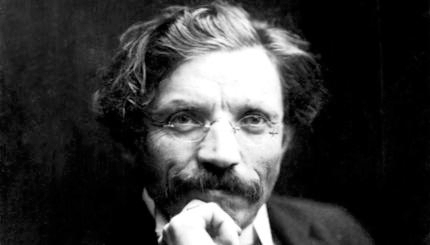10:04 is Ben Lerner’s second novel and one of the most riveting and funny works of fiction to come along in decades.
This is a novel about the novel itself. Like the real-life Lerner, the narrator of 10:04 is a writer who earns a significant sum from a competitive auction between publishing houses based on the strength of a short story he published in The New Yorker. 10:04 is the story of how 10:04 came to be; it is the thing, and also a thing about the thing.
Our narrator is a 33-year-old writer who lives in New York City. He has been diagnosed with a heart condition; he is tested for diseases; he agrees to father his best friend’s child, resulting in an unforgettable visit to a fertility clinic; he spends his advance on lavish dinners; he thinks about art, love, children, memory, the future.
He works a shift at the Park Slope Food Coop in Brooklyn, then takes a walk that culminates at Brooklyn Bridge Park. In one of the most memorable passages, in a book littered with memorable passages, the narrator finds a bench and looks at the “magnificent bridge’s necklace lights in the sky… the liquid sapphire and ruby of traffic on the FDR Drive.”

Help us keep Jewish knowledge accessible to millions of people around the world.
Your donation to My Jewish Learning fuels endless journeys of Jewish discovery. With your help, My Jewish Learning can continue to provide nonstop opportunities for learning, connection and growth.
But it is when he thinks about the “bundled debt, trace amounts of depressants in the municipal water, the vast arterial network of traffic, changing weather patterns of increasing severity,” and is “taken in” by the skyline, that he begins to cry. Crying, of course, is a “mild lacrimal event.”
There are sentences like that on every page of this gift of a book. They dazzle and uplift, delivering neuroses crowned with bows. 10:04 is the breathing embodiment of the famous maxim: you can get away with anything, as long as you’re funny.
10:04 takes place between two historic hurricanes: Irene and Sandy. New York is girding itself against disaster; or, it’s post-disaster, and all of Lower Manhattan is blacked-out. Those otherworldly milieus are ideal for Lerner’s otherworldly language.
And “otherworldly” is precisely the point. The epigraph to this book quotes a Hasidic folktale: “Everything will be as it is now, just a little different.” There is no explicit mention of Jewishness in the novel but 10:04 didn’t win runner-up for the Sami Rohr Prize for Jewish Literature for nothing. Only a Jew from Topeka, Kansas—almost a contradiction in terms—could have written this book.
Reading Lerner’s novel, you can see how we got here. The poetry of Clarice Lispector, the funny business of Philip Roth or Erica Jong, the genre-bending inventions of W.G. Sebald—all are present in this tight and stunning novel. Wherever Lerner goes next, we’ll go, too.
See Lerner’s style for yourself; get your copy of 10:04 here.




